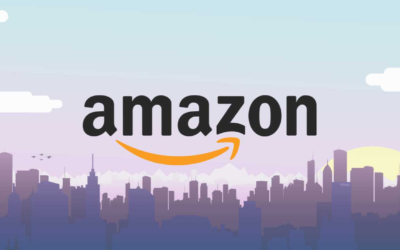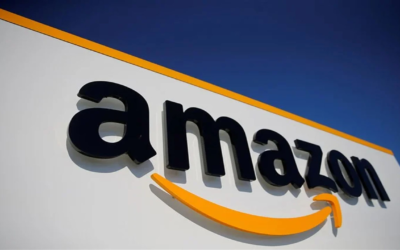If you’re running an Amazon FBA (Fulfillment by Amazon) business, choosing the right fulfillment method is critical for success. Fulfillment methods impact your costs, delivery times, and customer experience. In this article, we’ll take a deep dive into the different fulfillment methods available for Amazon FBA businesses and provide guidance on how to choose the right one.
Table of Contents
- Introduction
- Fulfillment Methods Overview
- Fulfillment by Amazon (FBA)
- Benefits of FBA
- FBA Fees
- Fulfillment by Merchant (FBM)
- Benefits of FBM
- FBM Costs
- Multi-Channel Fulfillment (MCF)
- Benefits of MCF
- MCF Fees
- Choosing the Right Fulfillment Method
- Evaluate Your Business Needs
- Consider Costs
- Evaluate Your Product Mix
- Consider Shipping Times and Customer Expectations
- Conclusion
- FAQs
1. Introduction
Amazon FBA is a popular fulfillment method for many eCommerce businesses. It allows sellers to store their products in Amazon’s warehouses, and Amazon handles the packing, shipping, and customer service. However, FBA isn’t the only fulfillment option available. Other methods, such as Fulfillment by Merchant (FBM) and Multi-Channel Fulfillment (MCF), may be a better fit for some businesses.
2. Fulfillment Methods Overview
Let’s take a closer look at the three primary fulfillment methods for Amazon FBA businesses:
- Fulfillment by Amazon (FBA): Amazon stores your products, picks, packs, and ships them to customers, and handles customer service.
- Fulfillment by Merchant (FBM): You handle all aspects of fulfillment, including storing inventory, packing and shipping orders, and customer service.
- Multi-Channel Fulfillment (MCF): You use Amazon’s fulfillment network to fulfill orders from other sales channels, such as your website or other marketplaces.
Each method has its own benefits and costs, which we’ll explore in more detail below.
3. Fulfillment by Amazon (FBA)
FBA is Amazon’s most popular fulfillment method. Here are some benefits of using FBA:
Benefits of FBA
- Prime Eligibility: FBA products are eligible for Amazon Prime, which can increase sales and improve customer loyalty.
- Customer Service: Amazon handles all customer service inquiries, which can save you time and resources.
- Shipping Costs: FBA offers discounted shipping rates, which can save you money on shipping costs.
- Scalability: FBA allows you to scale your business without worrying about storage, packing, and shipping.
FBA Fees
While FBA offers many benefits, there are fees associated with using the service. FBA fees include storage fees, fulfillment fees, and additional fees for special services, such as gift wrapping or labeling. It’s essential to factor these fees into your pricing strategy when deciding whether to use FBA.
4. Fulfillment by Merchant (FBM)
FBM is the opposite of FBA. You handle all aspects of fulfillment, including storing inventory, packing and shipping orders, and customer service. Here are some benefits of using FBM:
Benefits of FBM
- Cost Savings: FBM can be cheaper than FBA since you don’t have to pay storage and fulfillment fees.
- Control: You have complete control over the fulfillment process, which can allow you to provide a more personalized customer experience.
- Flexibility: FBM allows you to fulfill orders on your own schedule, which can beneficial for businesses with specific shipping requirements or custom products.
FBM Costs
While FBM can be cheaper than FBA, there are still costs associated with fulfillment. You’ll need to factor in the costs of storing inventory, shipping supplies, and shipping fees. Additionally, you’ll need to handle all customer service inquiries, which can be time-consuming.
5. Multi-Channel Fulfillment (MCF)
MCF is a fulfillment option that allows you to use Amazon’s fulfillment network to fulfill orders from other sales channels, such as your website or other marketplaces. Here are some benefits of using MCF:
Benefits of MCF
- Centralized Fulfillment: You can use Amazon’s fulfillment network to fulfill orders from multiple sales channels, which can simplify your fulfillment process.
- Fast Shipping: Amazon’s fulfillment network can provide fast shipping times, which can improve customer satisfaction.
- Cost Savings: MCF fees are typically lower than FBA fees, which can save you money on fulfillment costs.
MCF Fees
MCF fees include shipping and handling fees, storage fees, and order handling fees. It’s important to factor these fees into your pricing strategy when deciding whether to use MCF.
6. Choosing the Right Fulfillment Method
Now that we’ve reviewed the different fulfillment methods available, how do you choose the right one for your Amazon FBA business? Here are some factors to consider:
Evaluate Your Business Needs
Consider the size of your business, your product mix, and your order volume. If you have a high order volume or a large product mix, FBA may be the best fit since it can handle high volumes of orders and a variety of products. If you have a smaller business or a limited product mix, FBM may be a better fit since you can handle fulfillment in-house.
Consider Costs
Factor in the costs associated with each fulfillment method, including storage fees, fulfillment fees, shipping fees, and handling fees. Consider your pricing strategy and profitability goals when deciding which method to use.
Evaluate Your Product Mix
Consider the size, weight, and fragility of your products when deciding on a fulfillment method. FBA may be a better fit for larger or fragile products since Amazon’s fulfillment network is equipped to handle these items. FBM may be a better fit for smaller, lighter products that are easy to ship.
Consider Shipping Times and Customer Expectations
Evaluate your customers’ expectations regarding shipping times and consider whether FBA or FBM can better meet those expectations. Additionally, consider whether you have specific shipping requirements, such as expedited shipping or international shipping.
7. Conclusion
Choosing the right fulfillment method is critical for success in your Amazon FBA business. Consider your business needs, costs, product mix, shipping times, and customer expectations when deciding on a fulfillment method. FBA, FBM, and MCF all have their own benefits and costs, so evaluate each option carefully before making a decision.
8. FAQs
- Can I use multiple fulfillment methods for my Amazon FBA business?
- Yes, you can use a combination of FBA, FBM, and MCF to fulfill orders for your Amazon FBA business.
- How do I factor in fulfillment costs when pricing my products?
- Factor in the costs of storage, fulfillment, shipping, and handling fees when pricing your products.
- How long does it take to set up FBA or FBM for my Amazon FBA business?
- It can take a few weeks to set up FBA or FBM for your Amazon FBA business.
- Can I change my fulfillment method after I’ve started selling on Amazon?
- Yes, you can change your fulfillment method at any time.
- Are there any restrictions on the types of products I can sell with FBA or FBM?
- Yes, there are some restrictions on certain types of products, such as hazardous materials and perishable items.
Overall, choosing the right fulfillment method for your Amazon FBA business can have a significant impact on your success. By evaluating your business needs, considering costs, and assessing your product mix and shipping requirements, you can make an informed decision about which method to use. Whether you choose FBA, FBM, or MCF, it’s important to factor in all associated costs and consider customer expectations to ensure a successful fulfillment strategy.





0 Comments